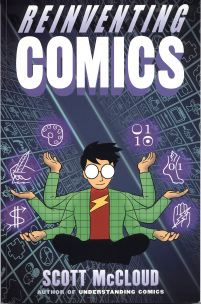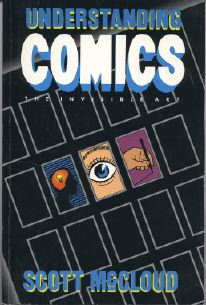









| ||||||||
Links du jour:
| ||||||||
The InterviewSunday night Karen called and asked if I wanted to go to dinner on Monday. Not having any plans, I said sure! She said she was already feeling conferenced-out, and it wasn't yet half over. Technical conferences can be a real drain, I know.So last night I picked her up at her hotel after work, and we headed to Frankie, Johnny and Luigi's Italian restaurant in Mountain View. We had some good food (their pasta is not - in my opinion - the greatest, but it is good, and you get a lot of it), and split a cannoli (which are very good there). Then we went walking through downtown Mountain View, and stopped at Bookbuyers to do a little shopping. I chanced upon pretty nice copies of Madeleine L'Engle's A Wrinkle in Time, A Wind in the Door, and A Swiftly Tilting Planet which I've wanted to re-read for a while, so I grabbed them (and still had a whole bunch of credit left over with the store). It was a nice, cool night and the sky to the west was reddish and mostly cloudless, which made for a nice walk.  The big news for the week is this: Today I interviewed for a development position on my team at work. As you may know, I've been in Quality Assurance for the last year-plus. I get to (have to!) do a lot of programming for this job, which is why I took it, but I haven't made it a secret that eventually I want to go back into development. I like building things and seeing them work and knowing that people use them. I planned to give QA a good shot, make sure that the company, my boss(es) and my cow-orkers got their money's worth with me in this position, but I didn't plan to be in QA over the long haul. Well, when Ben left our team a few weeks ago, naturally a position opened up. Tom had been bugging me for a while, asking, "So are you gonna interview? You gonna interview?" And right before my vacation my boss asked if I wanted to interview. I said sure, sent my resume off to the appropriate people, and then suddenly interviews were set up for today. Interviewing is exhausting. You want to be at your best, and be sharp and have a positive attitude, and you spend the whole time talking to people and answering questions (and sometimes asking them). It's not an environment most people spend most of their time operating in, so just because it's different, and because it's presumably something you want, it's stressful. And therefore tiring. On top of all this, I started coming down with a cold last night, and my throat was sore and I was drinking large quantities of water. Plus I also had to interview an external candidate for a QA position on the same day! Well, interviewing the other fellow went pretty well. My own interview started at 11 am, and went until 5 pm, with breaks for lunch and for the feedback session for the guy I interviewed. Eleven different people interviewed me - more than interviewed me when I applied for my current job! Zoiks! Well, unsurprisingly the interviewed varied depending on the people. The head of the team asked the expected questions about my background, my opinions about the product, and where I see it and myself going. Beyond that, well, there were technical questions (some I knew, some skirted the edges of my knowledge of Java and Objective-C and were tough to answer), some were about working on the team, some were general software design questions. Overall I think it went pretty well. This is a tough group to interview for, I know, so there's a not-inconsiderable chance that they might decide not to hire me. But I'm optimistic; in general I seem to get along with my cow-orkers and they seem to respect my abilities, and hopefully that (if nothing else) will carry the day.
 Over the weekend I finished reading David Brin's The Practice Effect, which is a light adventure story whose underlying SF premise is very interesting, but not handled especially well. Overall a disappointing book.
Reinventing Comics is quite a different matter. As its title suggests, it's forward-looking: The comic book industry in America is in a slump, and doesn't seem likely to pull out of it anytime soon. Probably correctly, McCloud charges that a big part of the problem is lack of diversity: Diversity of subject matter (the vast majority of comics involve superheroes; there are a few science fiction, fantasy, mystery, crime and noir niches, but they are by far the minority), and diversity of readers (the majority of comics readers are teenage and young adult white males) and creators (mostly white males, albeit of varying ages). Unsurprisingly this lack of diversity has not motivated many people from outside the existing industry to come in and try something new to change things, and the status quo is reinforced from top to bottom throughout the production and distribution chain. About half the book is also dedicated to the impact of computer technology on comics: Computers are often used to help produce comics (most coloring and lettering is now done by computer, for instance), and may soon be used to distribute comics (over the net, natch), and open the door to new styles of comics which take advantage of the medium to do things which were never possible before. And, as in UC, RC contains a wealth of references to comics I've never even heard of. I'm not the most well-read comics aficionado around, but I at least check out a lot of different stuff just to see what's out there, but McCloud referred to at least a dozen books which had never even registered on my radar screen whatsoever. Wow.
And though his understanding of computer technology is surprisingly deep for someone who's not himself a trained computer geek (the only differences I have with his technical acumen are quibbles), I think the future of art on computers and networks is sufficiently uncertain that small shifts in technology could completely smother McCloud's predictions. (My prediction: If comics can't make it in print, it certainly won't make it on the net, because I believe that people will gravitate towards movie or virtual reality technology instead. There may be a few holdouts, but the majority of the public won't see the point of static pictures to tell stories when perceived-to-be-better media are available.) There's another point on which RC disappointed me: The artwork. Both UC and RC are told in comics form themselves, but when I went back to look at UC - which was done by hand - the art seemed much more fluid and intricate than the computer-creation-aided art in RC, which seems rather flat. I didn't actually realize this while reading RC, but the difference struck me when I compared the two. Anyway, I can't particularly recommend Reinventing Comics even to comics fans, unless you're just a huge fan of the art form. And for non-fans, I'd recommended Understanding Comics instead. It's a charming and illuminating look into a medium you might not be familiar with. (It's still available at many bookstores.)
|
||





 I also read Scott McCloud's Reinventing Comics, the sequel to his 1993 Understanding Comics. UC is a very interesting book, examining the elements of sequential art storytelling (mainly comic books, but also newspaper strips, airline flight safety guideline strips, and anything else involving putting static pictures in sequence to tell a story or convey a message). There has not been much intellectual study of the art form (certainly nowhere near the study which has gone into nearly every other art form), and although I disagree with some of McCloud's statements (for instance, I strongly disagree with his observations about what makes Japanese Manga work, which may explain why it doesn't work for me), it's still an illuminating book.
I also read Scott McCloud's Reinventing Comics, the sequel to his 1993 Understanding Comics. UC is a very interesting book, examining the elements of sequential art storytelling (mainly comic books, but also newspaper strips, airline flight safety guideline strips, and anything else involving putting static pictures in sequence to tell a story or convey a message). There has not been much intellectual study of the art form (certainly nowhere near the study which has gone into nearly every other art form), and although I disagree with some of McCloud's statements (for instance, I strongly disagree with his observations about what makes Japanese Manga work, which may explain why it doesn't work for me), it's still an illuminating book. But, I don't think Reinventing Comics is nearly as successful as Understanding Comics. The main reason for this is that while even today UC is still a revelation, RC mostly covers ground which has been covered in some small depth by many others in the industry in recent years, and although some of the details differ, I don't think McCloud really offers any new solutions or even a particular different analysis of the problems that face the medium.
But, I don't think Reinventing Comics is nearly as successful as Understanding Comics. The main reason for this is that while even today UC is still a revelation, RC mostly covers ground which has been covered in some small depth by many others in the industry in recent years, and although some of the details differ, I don't think McCloud really offers any new solutions or even a particular different analysis of the problems that face the medium.